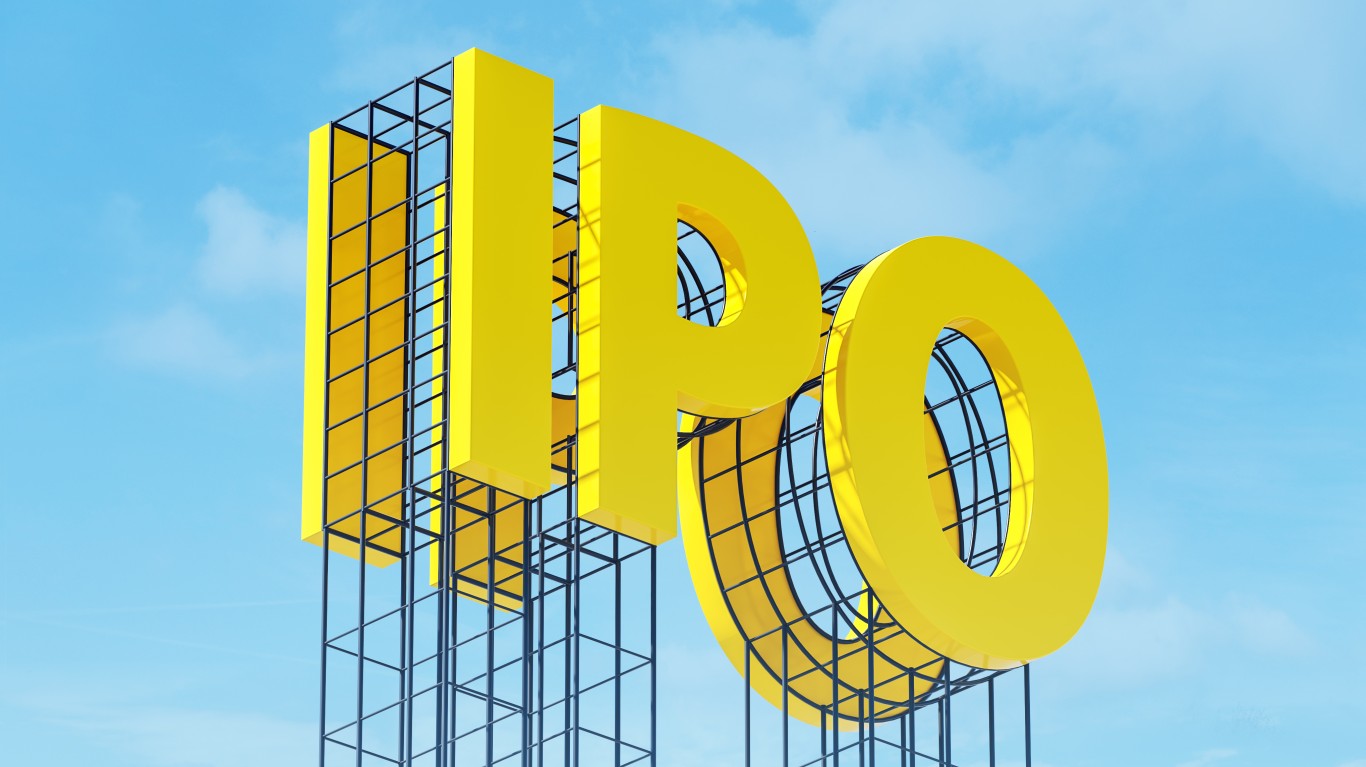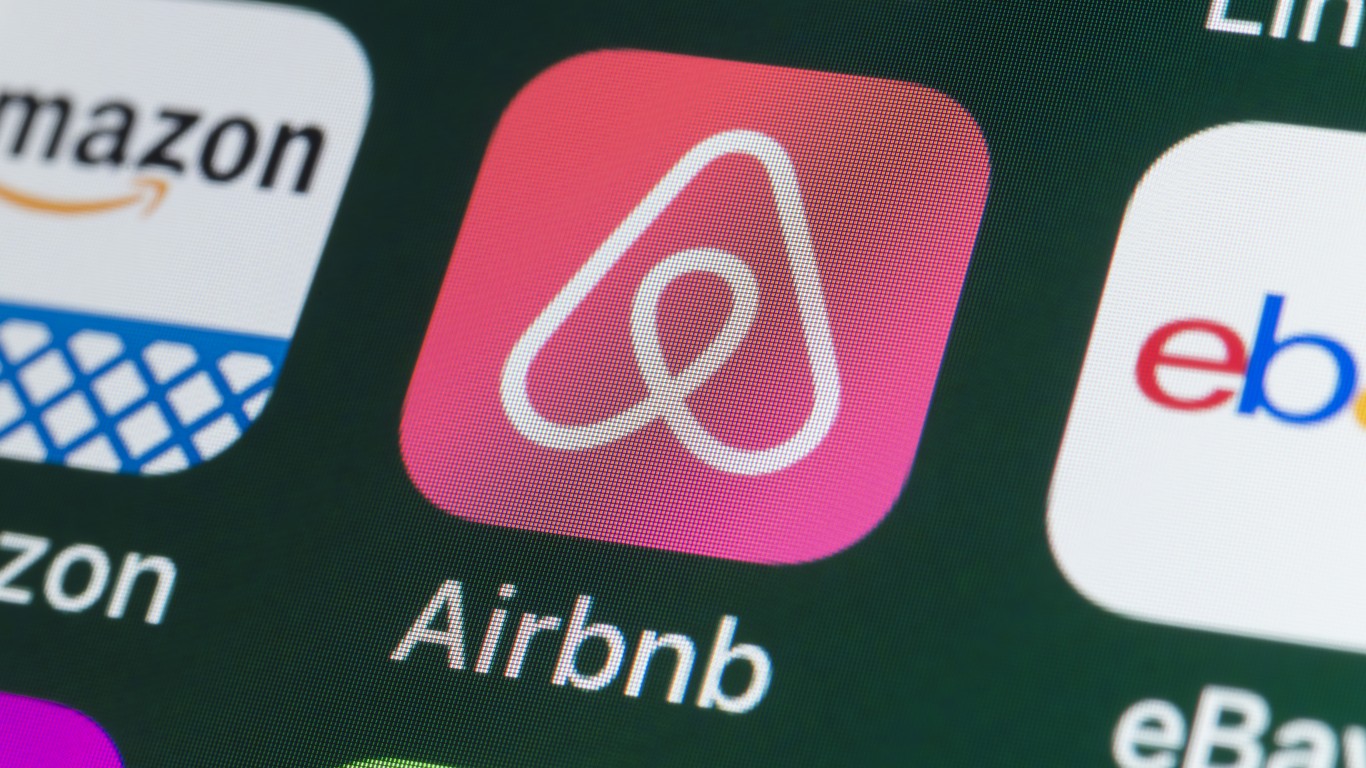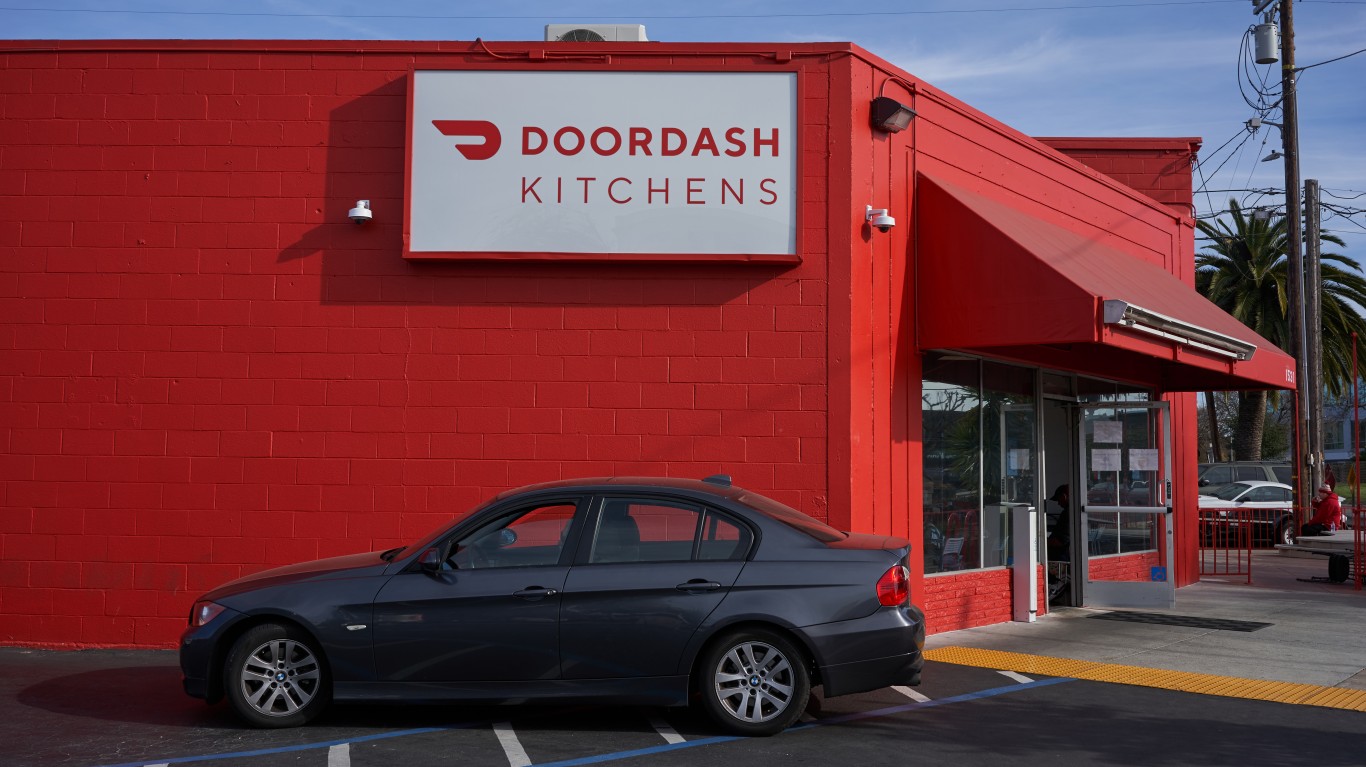Special Report
7+ Companies That Had Their IPO in 2020: Best and Worst Performers

Published:

2020 will forever be remembered as the year the coronavirus pandemic broke out. But in the year of the lockdowns, there were also 480 initial public offerings on the U.S. stock market — a record high at the time, according to Stock Analysis. Only 2021 had more IPOs. With nearly 500 IPOs, naturally many of the companies that went public that year are not that familiar, with many startups and special purpose acquisition companies, or SPACs, floating shares. The absolute best and worst performers, therefore, may not actually be that meaningful.
Indeed, some companies that went public in 2020 have liquidated since. In addition, several SPACs have since been redeemed without consummating their business combinations, while others delisted after completing their business combination. Let us also look then at some of the best and worst performers among the biggest IPOs of the year. Here are two of the absolute best performers and several of the worst — among still trading companies — followed by a look at how five of the biggest and better-known IPOs of the year fared. (Also see, A Strong IPO Market Awaiting in 2024? ETFs in Focus.)

Academy Sports and Outdoors, Inc. (NASDAQ: ASO) is an American sporting-goods store chain that debuted on the Nasdaq on Oct. 2, 2020, at $13 a share, raising $203 million. The stock closed trading on Jan. 2 at $67.42 for a 419% return since its IPO. It is worth noting, though, that 2023 was quite choppy for the stock after the company missed earnings and revenue estimates at least twice. The company’s current market capitalization is $5 billion, and in its most recent fiscal year it report $6.4 billion in sales.

Clinical stage vaccine company Vaxcyte, Inc. (NASDAQ: PCVX) raised $287.5 million in its IPO on June 12, 2020, when it sold nearly 18 million shares for $16 apiece. On Jan. 2, the stock closed at $62.94 for a 293% return for those able to get in at the IPO. (The shares opened trading at $23.56, per Yahoo! Finance.) The company develops vaccines to prevent or treat bacterial infectious diseases but has no products on the market yet. Still, nine analyst have a buy recommendation on the stock.

At the other end of the spectrum are also biotech stocks — several that went from promising IPOs in 2020 to becoming penny stocks. Cell therapy developer SQZ Biotechnologies Company (OTCMKTS: SQZB) had an IPO price of $16 at the New York Stock Exchange and is now trading at $0.02 on the over-the-counter market after being delisted from the NYSE — despite a 1-for-10 reverse stock split. Similar fates befell immuno-oncology gene therapy developer Scopus BioPharma Inc. (OTCMKTS: SCPS) and dynamic arrhythmia care company Acutus Medical, Inc. (NASDAQ: AFIB), though the latter manages to remain listed on the Nasdaq and trades at around $0.20 a share. Its IPO price was $18 a share.

Though it seems like it has been around forever, Airbnb (NASDAQ: ABNB) went public just four years ago, on Dec. 10, 2020, at an IPO price of $68 per share, raising $3.5 billion. Considering the stock closed at $133.42 Jan. 3, the return is nearly 100%. The shares, however, opened at $146 on the first day of trading, and the Airbnb IPO at the time was regarded as a smashing success. While the shares closed at over $200 several times in 2021, they are now far from these highs.

Data cloud company Snowlake (NYSE: SNOW) IPO was another stunner. The company raised nearly $3.4 billion, pricing its Sept. 16, 2020, IPO at $120 a share. The stock closed at $184.21 on Jan. 3, for a 53% return. Of course, few were able to get in on the IPO price and had to wait till trading opened — at $230 per share. The stock even reached close to the $400 mark in late 2021, but has stumbled since.

Chinese electric vehicle maker Li Auto (NASDAQ: LI) raised over $1 billion in 2020, pricing its IPO at $11.50 per ADS. Today (early January) the shares trade at over $35 for an over 200% return (the shares opened trading at just over $16). The company has reported strong revenue growth, and in its most recent quarter, Li Auto reported a 182% year-over-year deliveries growth.

Another large IPO was that of food delivery company DoorDash (NASDAQ: DASH), which raised $3.4 billion through its Dec. 9, 2020, IPO, pricing its shares at $102. The stock opened trading at $179, however, already clocking a 75% return. Today, the stock trades at $93.77 (Jan. 3 close), a -8% return from the IPO price and an even bigger stumble from its open.

E-commerce company ContextLogic Inc. (dba “Wish”) (NASDAQ: WISH) offered on Dec. 16, 2020, common stock to the public at a price of $24.00 per share, raising $1.1 billion. WISH opened trading at $22.75 per share, below its IPO pricing. Since then, the company has fallen on hard times and had to do a 1-for-30 reverse split in April 2023. The stock closed at $5.75 on Jan. 3, but that needs to be compared to the split-adjusted IPO price of $645 (per Yahoo! Finance). The rest is self explanatory…
Thank you for reading! Have some feedback for us?
Contact the 24/7 Wall St. editorial team.